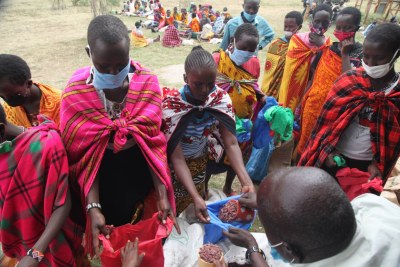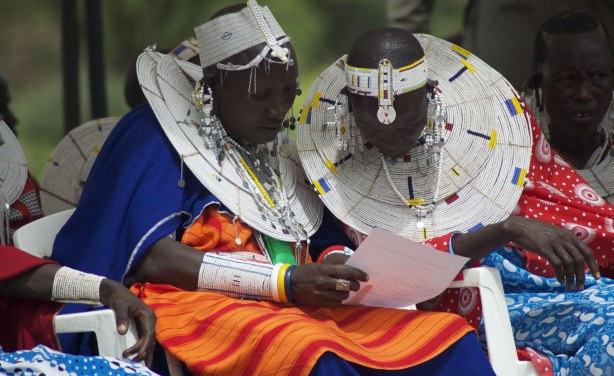-
Tanzania: How Maasai Women Are Resisting Land Grabs
Globetrotter, 2 August 2022
In Mwanza, Tanzania, Nairukoki Leyian-Naisinyai tells me that here, "Corporations come with papers from the government claiming that they have the right to our land." She points to… Read more »
-
Tanzania: Tanzania Making Headway in War On Gender-Based Violence
Citizen, 1 May 2021
Maria Holmström, a lady from Finland who has lived in Tanzania for 12 years, is among the people who have made remarkable contribution to ending violence against children and… Read more »
-
Tanzania: UN Women Supports Maasai Women-Led Enterprises to Respond to COVID-19
UN Women, 24 June 2020
The Ngorongoro district in Arusha region is a land of craters, sacred forests and mountains, wild animals and the Maasai people. This community has learnt to co-exist with nature,… Read more »
-
Tanzania: Pushing for Girl Education Among the Maasai
Daily News, 7 May 2020
LIKE other Tanzanian tribes, which used to deny girl children the right to education, the Maasai in the Ngorongoro Conservation Area Authority (NCAA), were also on the list. Read more »
How Maasai Women Are Resisting Land Grabs in Tanzania
The Maasai are a semi-nomadic pastoralist community that proudly practice an Indigenous way of life closely tied to their land and cattle. Their ancestral lands border the East African Rift Valley, the Serengeti National Park and the Ngorongoro Conservation Area. The government aims to expand the Ngorongoro Conservation Area in northern Tanzania and plans to turn it into a game reserve.
In Mwanza, Tanzania, Nairukoki Leyian-Naisinyai told Hibist Kassa that, "Corporations come with papers from the government claiming that they have the right to our land." She points to the large corporations that have entered the lands of the Maasai people to mine rubies and tanzanite. The Maasai can neither assert their rights to the land nor benefit from the mining of these precious resources.
This is compounded for Maasai women who do not have the capital to engage in mining, and do not own livestock. Additionally, economic activity among Masaai comunities is controlled by men. Leyian-Naisinyai says, "Women are expected to do housework and care for the livestock... [owned by] men." Meanwhile, climate change is only adding to the issues faced by women.
InFocus
-
In early June 2022, more than 30 people from the Maasai community in the Loliondo division in Tanzania's northern Ngorongoro District were reportedly injured, and one person died ... Read more »




